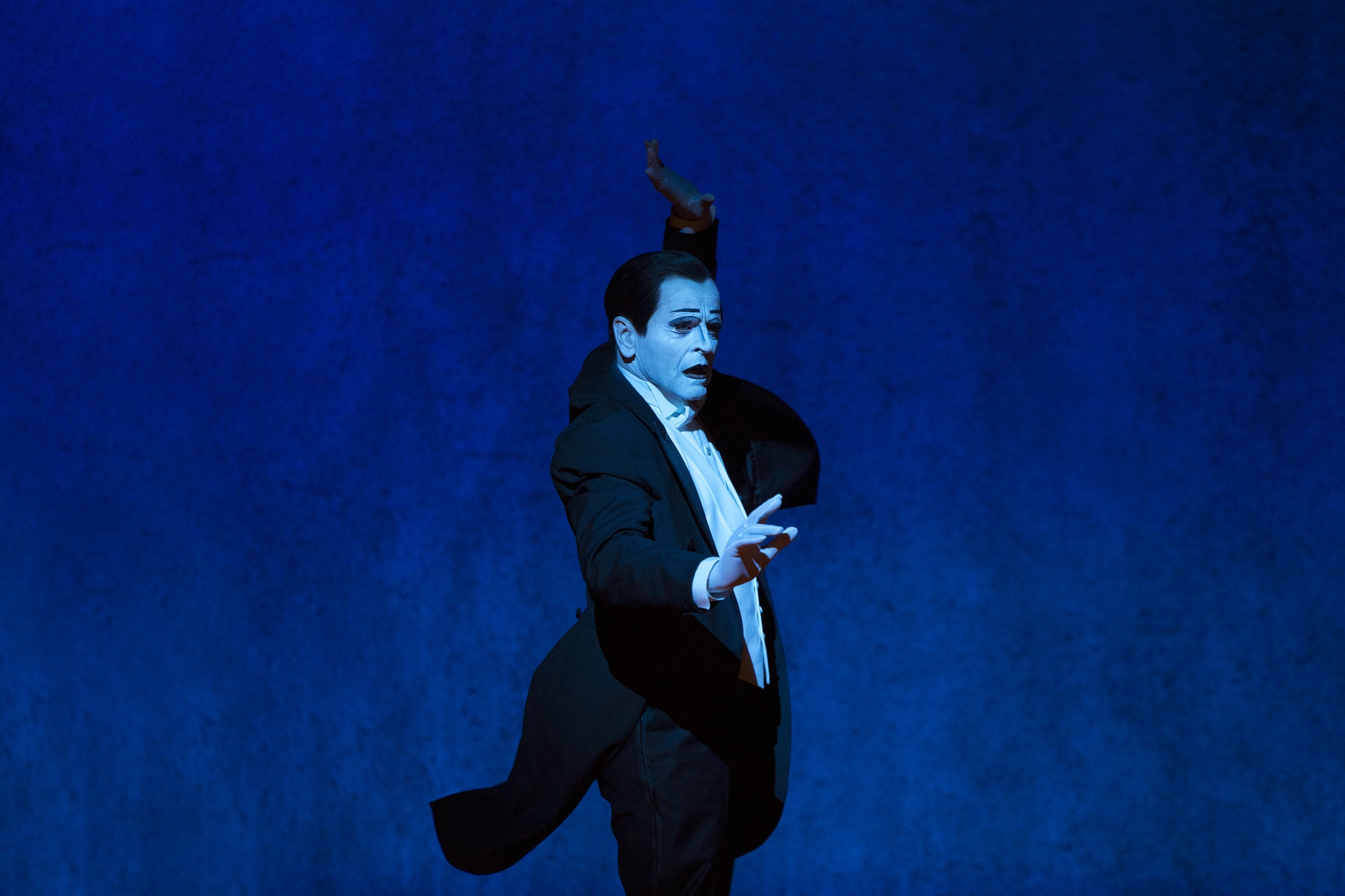Robert Wilson and Mikhail Baryshnikov in Riga

From 3 to 7 August 2016, the Latvian National Opera will host Mikhail Baryshnikov’s mono-performance Letter to a Man. The Riga-born ballet dancer reminds us that this is a theatre project, not a dance show.
The mono-performance Letter to a Man is directed by the world-renowned avant-garde theatre director Robert Wilson, who has previously worked with Mikhail Baryshnikov, directing Daniil Kharms’ The Old Woman for the Manchester Festival in 2013 alongside Baryshnikov and actor Willem Defoe. Letter to a Man, which premiered last year in Spoleto, Italy, is based on the diary of the great Polish-born Russian ballet dancer Vaslav Nijinsky (1889-1950).
Despite his brief stage career, Nijinsky, a member of Serge Diaghilev’s renowned Russian Ballet Company, and the pioneer of modern ballet choreography, is regarded as one of Western culture’s greatest ballet artists. As he approached the age of 30, Nijinsky began to experience mental problems; in fact, his diaries, written between 19 January and 4 March, 1919, document and illuminate the young man’s mental breakdown.
In an interview with The Guardian, Baryshnikov stressed that “this is not a biographical play about Nijinsky. The play is about a man’s encounters and relationships with his art, God, family and inner conflicts. It’s a peculiar story with parallels – about the personality’s voice rather than the person’s physicality.”
Vaslav Nijinsky, born in Kyiv, was taken to the Mariinsky Theatre School by his mother. While still in school, he was noticed by the dancer and choreographer Michael Fokine, who wanted to revolutionise ballet by giving men more roles on stage. At the age of 19, Vaslav met Serge Diaghilev – his future impresario, teacher, guardian and lover, who provided him with roles and great publicity. Later Diaghilev encouraged Nijinsky’s involvement in choreography, but Vaslav only had time to create a few productions. After Nijinsky’s marriage to the Hungarian aristocrat Romola de Pulszky, Diaghilev expelled the dancer from the company, and put obstacles in the way of Nijinsky’s attempt to form his own ballet company. In 1919, Nijinsky’s last performance took place in a Swiss hotel. The consequences of inaction, the ravages of war, the inability to get along with his mother-in-law were devastating for the artist. Nijinsky’s diary, written over six months, was published by his wife in 1936, but the genius himself spent the last 30 years of his life in various psychiatric clinics, diagnosed with schizophrenia. Researchers of Nijinsky’s biography also mention that a Life magazine correspondent captured Nijinsky dancing with Soviet soldiers in Vienna in 1945.
At that time, the then-non-speaking Nijinsky was said to have communicated with his compatriots in Russian. Nijinsky died in 1950 in London. Interestingly, Robert Wilson “set” this play in Budapest in 1945, shortly before the end of the Second World War. It is worth noting that the most passionate of Nijinsky’s letters, which was never sent, was titled Letter to a Man and addressed to Diaghilev…
Mikhail Baryshnikov has been asked several times, in connection with this production, what he has in common with Vaslav Nijinsky. Both were born far from the centre of the empires of the time, both studied at the same ballet school (in each period it had its own name – the Mariinsky Theatre School, then the Leningrad Choreography School, now the St Petersburg Vaganova Ballet Academy), both danced at the same theatre (in St Petersburg the theatre was founded in the 18th century as imperial ballet; later renamed the Mariinsky Theatre, and in Soviet times the Kirov State Academic Theatre of Opera and Ballet).
Nijinsky left Russia in 1909, while Baryshnikov emigrated from the USSR to Canada in 1974 during a ballet tour in Toronto. “Youth is all we have in common, we went in different directions with different intentions,” Baryshnikov admitted in an interview with the British newspaper The Guardian. This performance stands out in the local cultural scene because it is the first time Latvia will have the opportunity to see a production by the legendary director Robert Wilson. Wilson’s productions have already been staged in Lithuania and Estonia, but only now it is possible to see them in Latvia. Guest tour organiser Andrejs Žagars: “Every Wilson performance becomes a vibrant artistic event. They are visually rich, magical, and at the same time, technically complex. In the late 1990s, when I was managing the Opera, I wanted to perform his